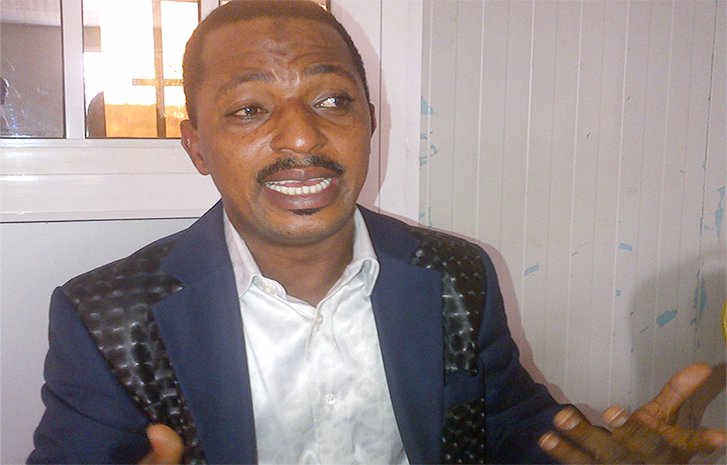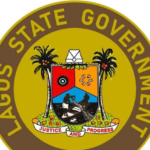
Segun Musa is deputy national president of the National Association of Government Approved Freight Forwarders. In this interview with ANOZIE EGOLE, he speaks on the challenges bedevilling the sector and the way forward
What is your reaction to the recent concession agreement between the Nigerian Customs Service and a Chinese firm, Huawei Technologies?
First and foremost, it is part of what we have been yearning for. It is also part of what we have been encouraging the government to do. We have been asking the government to migrate in order to, at least, meet international best practices. It will interest you to know that the rest of the world has gone beyond where we are presently. We have so much human interference and it encourages a lot of corrupt practices. So, for us to migrate to that level now is good. I think after the project, there is going to be trade facilitation and ease of doing business. It will also increase the revenue generation of the Customs.
There are fears in some quarters that the move is an indirect way of ceding the core responsibilities of the Customs to foreigners. How true is this?
That is not true. it is more like propaganda meant to blackmail the Federal Government. To the best of my knowledge as one of the promoters of this exercise, I believe it is a conventional standard that you outsource your revenue to the private sector when you suspect there is a leakage. The core function or activity of the Customs is beyond revenue collection. Perhaps, you will also remember the Abacha regime, when he introduced the Professional Import Duty Administrators, where they were saddled with the collection of revenue for the government. So, it is not a new thing to outsource, especially in Nigeria here.
Let me explain the process to you. Firstly, they are to modernise the process of revenue collection through the automated system and we are just at the first stage now. As a freight forwarder or importer, you can build what they call ‘soft zone’ either in your home or business. You may input data and your data will be analysed. If the data corresponds with what has been manifested, the process will allow a free and smooth data analysis and migrate you to the level of duty payment online. So, you don’t need to go to the bank and queue to pay your Customs duty as you can pay that online. Once your duty has been paid online and this takes a very minimal time, then your cargo will go through scanning instead of the physical examination that wastes a lot of time. It goes through scanning, and once it is scanned and there is no problem, it will be released. If there is any suspicion, then they would invite you and carry out physical examination. If otherwise, it will go through a smooth release. And once it is released, they will send you a release code. It will not be the normal Customs giving you a release document. The Customs will release your consignment to you through e-release and it will come in the form of a code to your phone or email. The second stage is that the shipping companies will also be automated. You can go online, do everything online and the shipping companies will give you a release code. You know once you collect a release code from Customs, they will also transmit the same release code to the shipping companies and terminal operators. And once you pay the shipping charges, they will transmit to terminal operators. It means you now have the Customs code and the shipping code with terminal operators. All you need to do is to pay the terminal charges and they will give you the Terminal Deliver Order Code. It comes as a text message or to your email and you will give it to your haulage or truck driver. The driver takes the code to the port. At the entry gate of the port, he will give them the code and they will input it into their system. It will show them the terminal you are going and they will alert the terminal that you are coming to pick up your cargo. They will position your cargo and it will exit without anybody stopping you. So, the essence of this is for smooth and ease of doing business. The system is built in such a way that it will start auditing itself as you are putting your data in the system. So, it will eradicate a lot of interfaces. It is not as if we are exposing our system, rather, we are building a system that our people will inherit in the future. You know, as the administrators install the system, you have to run it for some time, see the challenges, and how to solve them. So, 20 years is just for building and managing it and after getting their money back, the Customs or anybody that can manage it will have the expertise to do so.
The Customs have accused some freight forwarders of trying to manipulate the Vehicle Identification Number platform for the valuation of imported vehicles. What is the update on the issue of VIN?
To the best of my knowledge, the VIN is still going through some teething problems, including issues of values with minimum years which have also been introduced. It is not everybody that can afford to buy a vehicle of 2013 and the minimum year for VIN is 2013. If you are bringing in a vehicle of 1970, you have to pay for 2013 as the Customs duty. So, it will make the cost of vehicles expensive, and not only that, it will also put a lot of people out of business. Then, aside from that, with the introduction of Customs modernisation, all these will also be integrated and the best approach will be deployed. So, I think it is a matter of time.
At the moment, is vehicle clearance going on at the ports?
Yes, it has been going on. We have people who have been able to go through the processes. They had no option but to pay duties of 2013 even if they were bringing vehicles of 1970. We have further plans to engage Customs, but the associations need to come together and agree on a way to further implore the Customs to have further discussions.
Despite the efforts of the Federal Government to ensure self-sufficiency in the area of local rice production, there seems to be an upsurge in the smuggling of this commodity. What do you think is the cause?
I have been appealing to the government not to ban rice, importation and I have engaged a lot of stakeholders on that. The economy of comparative advantage allows you to concentrate on areas where you have an advantage and in areas where you do not have the competency, you outsource and co-source. As far as Nigeria is concerned, we don’t have a comparative advantage in rice farming. It will interest you to know that if you cultivate rice in all the acres of land available in Nigeria, you will get 1.6million metric tons per hectare. That is what we can grow. And Nigeria needs a minimum of 3.6 metric tons per hectare for our local consumption. So, already, we have a deficit of almost 2 million metric tons per hectare. Again, due to industrialisation, shelter and others, we have occupied the major part of the land that can grow rice.
So, the rice land that is available now can only grow on 0.6 metric tons per hectare. So, already, we have lost about 1million metric tons per hectare to industrialisation, shelter and every other thing. So, with 0.6 million metric tons per hectare compared to 3.6metric tons per hectare, we have a deficit of about 3 million metric tons per hectare. That is why you will continue seeing the prices of rice going up all the time. On record, if I am to import rice from Thailand, my landing cost, including Customs duty, storage, transport, and every other thing is N5000 per bag. That is, if I buy, ship, clear, pay the duty, warehouse, and do every other thing, including adding my profit, the bag is at N5,000 per bag. It is expensive because the demand is very high and the production is low. We only have 0.6 million metric tons per hectare, whereas we need 3.6million metric tons per hectare. Rice is one of the major consumable items in Nigeria.
The demand is high and the price has to go up. You can imagine if you are producing locally here where we are not shipping, clearing, or doing any other thing and it is this expensive at over N30, 000 per bag. So, the demand is high and the supply is low. There is no way the government can stop this. What the government needs to do is to allow this thing to come in and whatever revenue that must be collected on the commodity can be given out to all these rice farmers and millers to improve the quality of rice. There is no country around the world where the government says that everybody must consume locally-made rice. You can only make the imported rice premium rice, where people will pay more. You cannot force people to eat rice with stones, and we have foreigners in this country and you can’t force them to eat rice with stones. Our milling process is still faulty. So, that policy doesn’t meet international requirements as far as we want to improve our local capacity. We also have to look at what is our strength and what is interest needs to be looked into.
Would you say Nigeria will benefit maximally in the African Continental Free Trade Area?
As far as the AfCFTA is concerned, Nigeria is not ready and the unfortunate thing is that it will be difficult for Nigeria to frustrate African Union the way we frustrated the Economic Community of West African States in the Common External Tariff. The rest of Africa will move on. They can definitely do without us. When the borders were shut, the rest of Africa continued to do their businesses.
And now, making the borders viable has been difficult. They have been deserted and people have moved on with their lives. People that lost their hard-earned money have moved on with their lives. But I just want to believe that in the future, we will have a government that will engage stakeholders before making some decisions. The decision of shutting down the borders was very wrong.
Copyright PUNCH.
All rights reserved. This material, and other digital content on this website, may not be reproduced, published, broadcast, rewritten or redistributed in whole or in part without prior express written permission from PUNCH.
Contact: [email protected]





